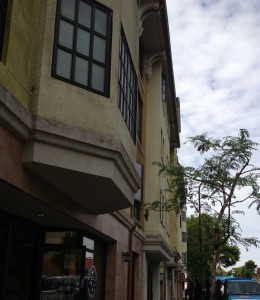City Council Discussed Two Reports on Affordable Housing

July 16, the Berkeley City Council received a report about how city staff are monitoring “inclusionary units” – the Affordable units developers have created to date as part of the requirement to mitigate the impact of fancy new condos and apartments. And get this – only three of the 58 properties have been inspected to date, even though the monitoring program costs the city $226,248 each year!
This is important not only for the safety of the low-income tenants who live in Berkeley’s 306 inclusionary units, but also because many landlords with new buildings under development are opting to provide inclusionary housing instead of paying into the Housing Trust Fund. The program, operated by the Housing Department, is supposed to make sure inclusionary units go to verifiably low-income folks, and check repair and maintenance of the properties.
The report says that in 2011 the department checked 58 units at three properties, but will check the remaining 248 units by this time next year. We shall see!
Report on Monitoring Inclusionary Housing: Monitoring Inclusionary Housing 2013-07-16
On the same day, the City Council’s final meeting before summer break, Council also reviewed a joint proposal from Council members Arreguin and Capitelli requesting that staff explore how the Affordable Housing Mitigation Fee is implemented, particularly in relation to developers who claim paying the fee is not economically feasible.
Some of the requests would probably be supported by Berkeley housing activists, like the idea that the fee should increase with inflation each year. Activists may also support establishing a city-maintained wait list of eligible low income households, since right now developers choose their own tenants and the Housing Department doesn’t seem to be checking up on them like their staff are supposed to do.
Other aspects of the proposed changes may cause controversy, like the idea that developers should be encouraged to pay the $20,000 fee rather than providing units on-site, perhaps by allowing developers to pay the fee over time instead of all at once.
The most interesting part of the proposal is that the income levels of tenants allowed to live in affordable units could be changed, as could the number of units that must be provided in place of the mitigation fee. Currently, inclusionary units are rented to households that make less than 50% of the Area Median Income, which is about $31,000 for a one-person household and $44,000 for a family of four.
About two years ago, the City Council set the fee at $28,000 after a Nexus study showed the costs to mitigate a unit of expensive housing could be as much as $34,000. But last year, the Council voted to lower the fee to $20,000 for the next several years – at a time when Berkeley is seeing record development – with over 1,000 units expected to be built while the fee is lower.
Affordable Housing Changes: Affordable Housing Fee waivers 2013-07-16
